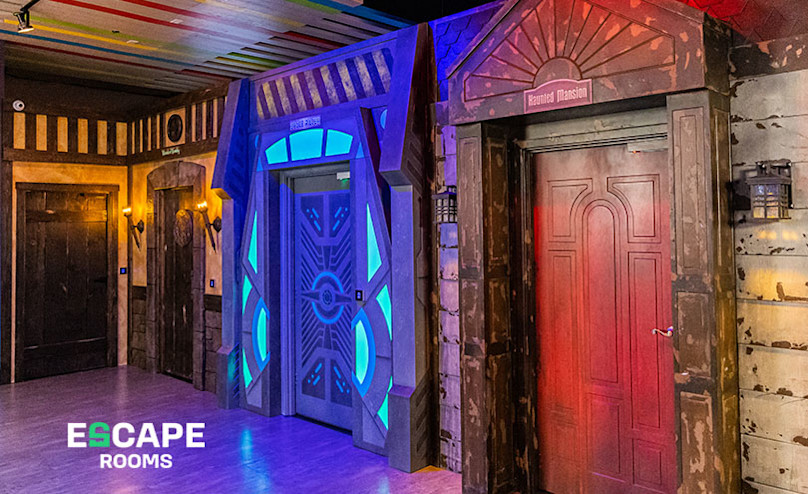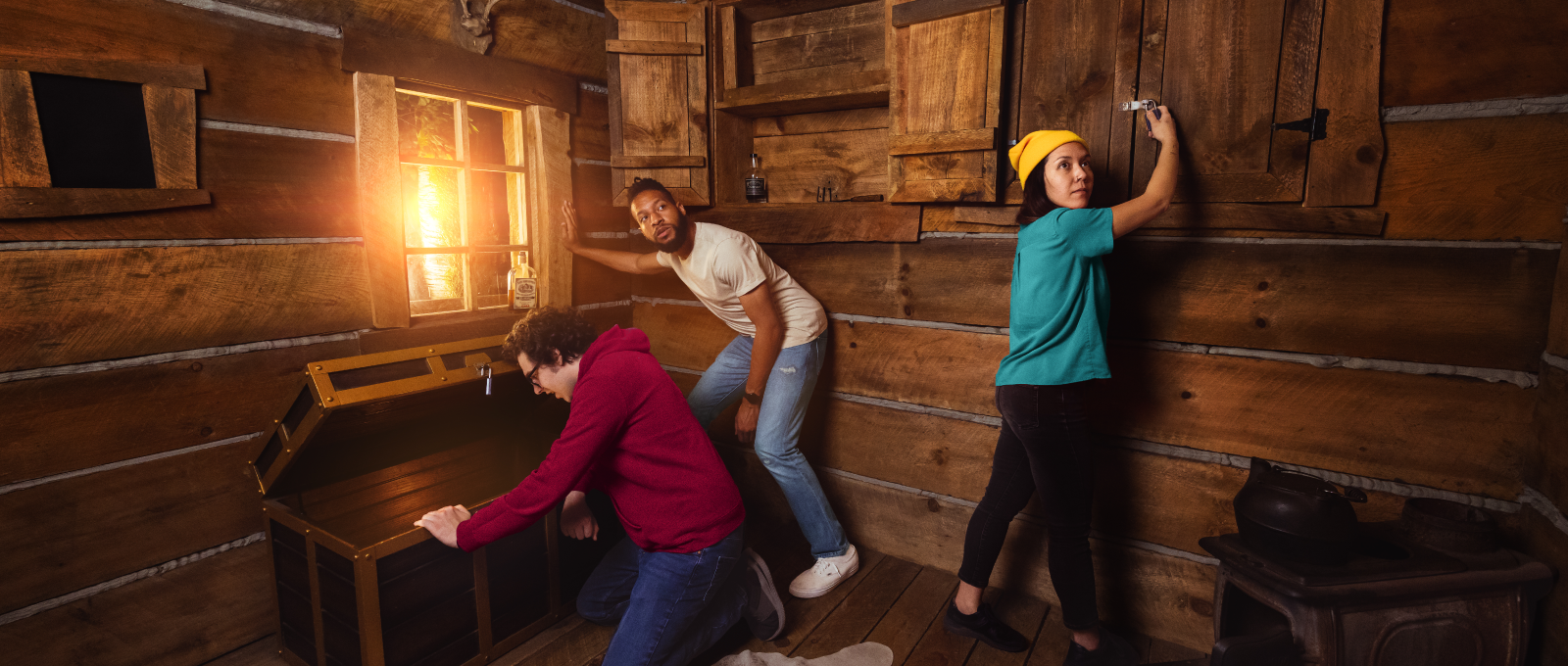Enjoyable and Challenging Escape Room-- Plan Your Next Journey
Enjoyable and Challenging Escape Room-- Plan Your Next Journey
Blog Article
Group Strategies: How to Work together Effectively in a Retreat Space
Groups have to proactively listen to each participant's insights, appoint duties that align with specific strengths, and keep routine check-ins to make sure emphasis and protect against redundancy. By cultivating a setting that values cohesion and versatility, groups can considerably enhance their effectiveness and success rates.
Establish Clear Communication

To assist in clear interaction, it is necessary to mark a central point of get in touch with for info circulation. This role involves summing up findings and suggested approaches to make certain everybody remains on the very same page. Furthermore, embracing an organized approach to conversations can stop chaotic exchanges. Quick, concentrated updates from each group participant can maintain the team educated without frustrating them with information - best escape room.

Assign Functions Strategically
While clear interaction establishes the foundation for effective synergy, appointing duties purposefully guarantees that each employee's strengths are utilized properly. In an escape space situation, the time-sensitive and intricate nature of difficulties requires a well-organized technique to job delegation. By determining and leveraging specific competencies, groups can enhance their problem-solving capacities and enhance general efficiency.
First, analyze the unique skills and characteristics of each individual. Somebody with an eager eye for detail might excel in locating hidden things, while a sensible thinker could be much better matched to addressing challenges. It's equally essential to have a leader who can oversee development, take care of the timeline, and make crucial phone calls when needed. This function commonly calls for strong business and social skills.
2nd, ensure that roles are flexible and adaptable. As brand-new obstacles emerge, the group must have the ability to pivot, reallocating jobs as called for. This flexibility assists keep momentum and protects against bottlenecks that could occur as a result of stiff role projects.
Eventually, a critical approach to function job not only takes full advantage of the staminas of each staff member but additionally cultivates a natural environment, driving the group towards an effective escape.
Make Use Of Diverse Abilities
Acknowledging and using the varied abilities within your group can significantly raise your efficiency in a getaway room. Each team participant brings unique staminas useful content to the table, and efficiently leveraging these abilities can quicken analytical and enhance overall performance. For instance, a staff member with solid logical skills could stand out at understanding complex codes or patterns, while another with eager empirical abilities might promptly detect concealed hints that could ignore.
Effective interaction is crucial to utilizing these varied skills. Encourage team members to articulate their understandings and concepts promptly, making certain that all potential services are thought about. This inclusive strategy promotes a dynamic atmosphere where creative thinking and vital thinking can grow. In addition, designating tasks that straighten with each member's staminas can stop traffic jams and make sure that progress is continual.
Moreover, variety in abilities frequently converts to variety in believing designs, which is indispensable in a retreat room setup. While some difficulties might need sensible thinking and accuracy, others might benefit from creative and lateral thinking. By recognizing and leveraging this variety, teams can resolve a more comprehensive array of obstacles more properly, consequently raising their opportunities of an effective escape.
Manage Time Successfully

Identify visible challenges and divide jobs based on team participants' staminas, making sure that nobody is still. This technique can help keep the team focused and protect against time from sliding away unnoticed.
Additionally, avoid one-track mind. If a challenge is taking too long, rotate employee or move on to an additional obstacle, returning later with fresh viewpoints. Communication is critical-- maintain everybody upgraded on addressed puzzles and continuing to be tasks to prevent redundant initiatives.
Finally, make use of any type of tips or clues sparingly however strategically - best escape room. this hyperlink Knowing when to request assistance can save important time. By adhering to these time monitoring concepts, groups can considerably enhance their possibilities of a successful and satisfying retreat space experience
Debrief and Show
Reflection is a vital aspect of team growth and renovation in the context of retreat spaces. Once the obstacle is completed, whether efficiently or not, it is important for the group to participate in a structured debriefing session. This procedure permits team participants to assess their performance, recognize strengths, and determine locations for enhancement.
Begin the debrief by reviewing what went well. Highlight specific circumstances of visit the website effective interaction, problem-solving, and cooperation. Acknowledging these favorable actions enhances them and motivates their repetition in future difficulties.
Following, address the barriers came across. Talk about minutes of complication, miscommunication, or inadequate techniques. Motivate an open and constructive discussion where employee can share their point of views without concern of objection. This cultivates a culture of constant enhancement and learning.
Final Thought
To conclude, successful cooperation in a retreat room is based upon clear interaction, calculated role tasks, the efficient usage of varied skills, and competent time administration. Normal check-ins and organized debriefings are important for maintaining focus and cultivating continual renovation. By creating a natural and flexible group environment, the likelihood of efficiently fixing problems and attaining the purpose of getting away the space is considerably improved. This strategy not just ensures success yet likewise promotes cumulative development and learning.
Report this page